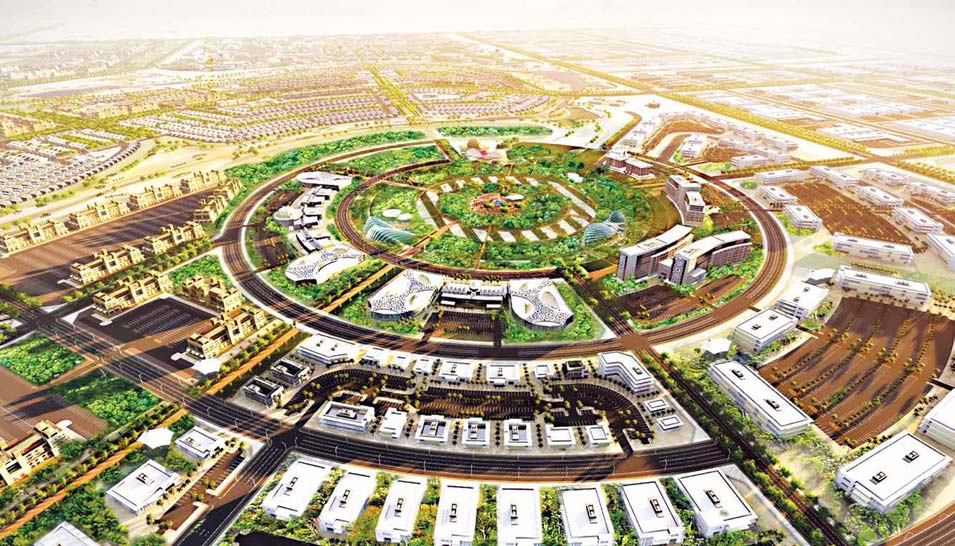
The drive to reduce, reuse, and recycle can be found throughout our operations, including project management.
In line with Aramco’s directive toward promoting a circular economy, improving sustainability, and lowering our carbon footprint, its project management work at King Salman Energy Park (SPARK) has implemented a phased deployment of a newly developed concrete called “Podzolic green concrete.” It’s the first time in the Kingdom that local recycled material has been employed as a partial replacement to cement.
The implementation was overseen by the SPARK Project Management Team (PMT) in collaboration with the Consulting Services Department.
Podzolic green concrete incorporates material produced as a byproduct from local manufacturing that was experimentally evaluated at the Research Institute of King Fahd University of Petroleum and Minerals based on international standards requirements, with support from a local concrete manufacturer. Results indicated equivalent mechanical properties and durability characteristics in this green concrete as compared to conventional ordinary Portland cement concrete (up to 15% replacement to cement).
In a site tour visit to the SPARK project, the Aramco senior vice president of Technical Services, Ahmad A. Al Sa’adi, highlighted the green concrete drive by noting green concrete and similar practices will be implemented at approved company concrete batch plants.
Aramco’s vice president of Project Management, Abdulkarim A. Al-Ghamdi, added that, “Deployment of green concrete is part of Aramco Project Management’s drive to create construction materials with reduced impact on the environment.”
Saudi Aramco’s Engineering and Project Management has been developing and promoting various technologies, leading the construction industry in-Kingdom toward more sustainability and efficient use of natural resources.
Concrete, which comes second to water as the most consumable material on Earth, has been under the focus of the company’s civil engineering experts and researchers and has received various initiatives toward these objectives. The novel use of recycled or waste materials, use of advanced admixtures to reduce water consumption, and improving durability through standards are some examples.
Using locally sourced and recycled materials in construction will help in reducing landfill disposals, and reducing CO2 emissions arising from cement production, which is globally considered the second most energy-intensive industry.
This technology is in line with SPARK PMT’s prestigious award recognition of LEED as a first industrial certification in the world for commendable commitments toward a green industrial development excellence.
— The Arabian Sun: October 21, 2020 | Vol. LXXV, No. 41